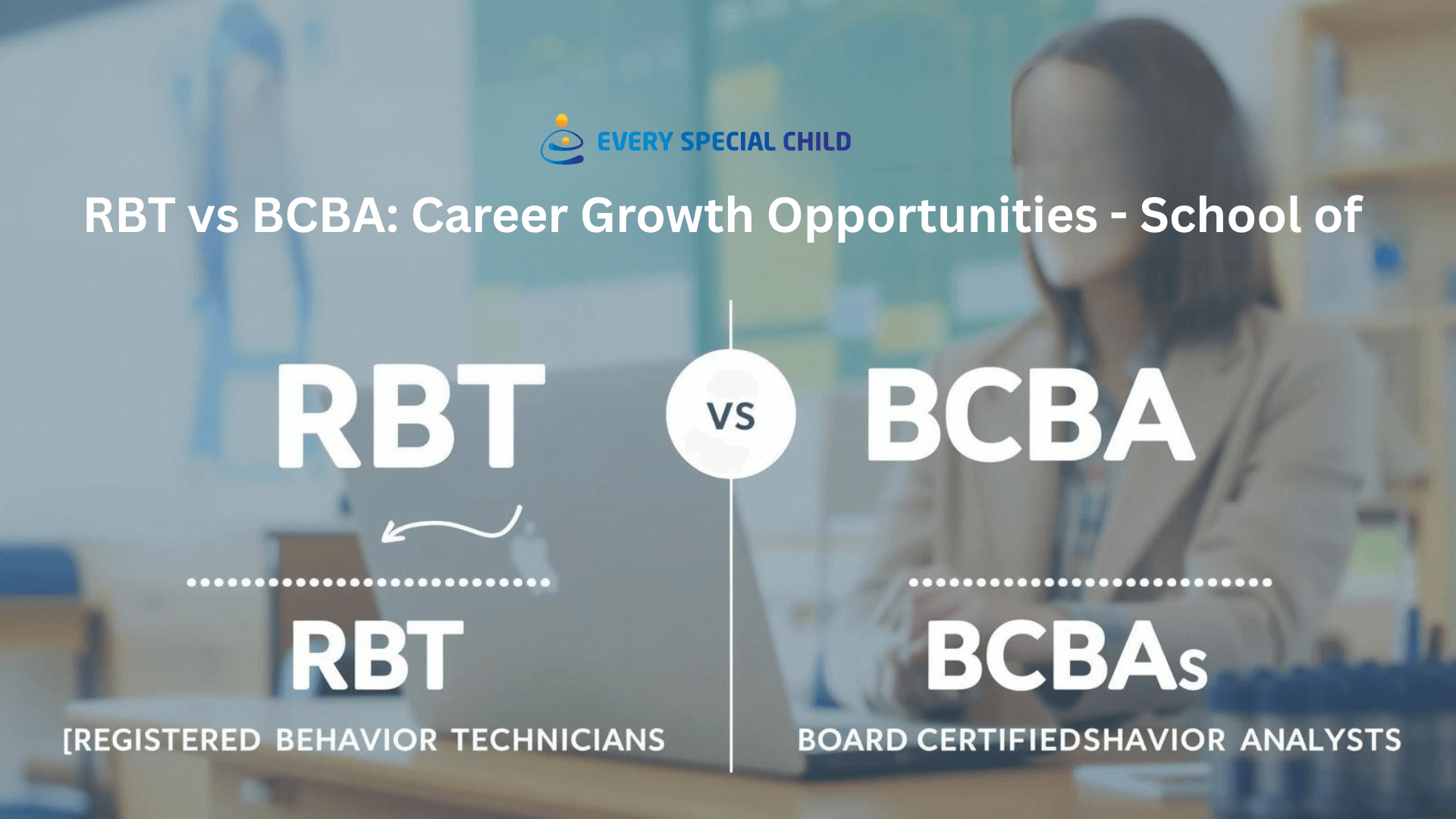RBT vs BCBA Career Paths: Career Growth Opportunities – School of
RBT vs. BCBA Career Paths In the field of behavior analysis, two roles often come up for comparison: Registered Behavior Technician (RBT) and Board Certified Behavior Analyst (BCBA). Both are essential to supporting individuals with behavioural needs, but their career growth trajectories differ significantly. Understanding these differences is crucial, especially for those aiming for long-term advancement in the School of Education or related settings. Apply Now.
What is an RBT?
An RBT vs BCBA Career Paths is a paraprofessional who works directly with clients to implement behavioural interventions under the supervision of a BCBA. RBTs conduct therapy sessions, collect data, and provide feedback to ensure that interventions are applied consistently. Certification requires completing a 40-hour training programme, passing a competency assessment, and maintaining ongoing supervision. Read More Articles.
What is a BCBA?
A RBT vs BCBA Career Paths is a professional responsible for assessing, designing, and supervising behavioural interventions. BCBAs hold a master’s degree in behaviour analysis or a related field, complete supervised experience, and pass a certification exam. They not only deliver therapy but also supervise RBTs and other staff, design programmes, and evaluate treatment effectiveness. See More
Scope of Practice: RBT vs BCBA Career Paths
- RBT: Focuses on direct implementation of therapy and collecting behavioural data.
- BCBA: Develops and oversees treatment plans, supervises staff, and makes programmatic decisions.
Career Entry Points
- RBT: Entry-level position, often a starting point for those new to behaviour analysis.
- BCBA: Requires advanced education, making it a mid-career entry point for many who have experience as an RBT or related professional.
Salary Comparison
- RBT Salaries: Typically range from $15 to $25 per hour, depending on location and experience.
- BCBA Salaries: Average $60,000–$90,000 annually, with potential for $100,000+ in specialised or private practice roles.
- Benefits: BCBAs often receive health insurance, paid leave, and professional development allowances, whereas RBT benefits vary by employer.
Opportunities for Advancement: RBT
While RBT vs BCBA Career Paths primarily support therapy delivery, they can:
- Gain specialized skills in autism or school programmes.
- Become senior RBTs or lead therapists
- Pursue BCBA certification for career advancement
Opportunities for Advancement: BCBA
RBT vs BCBA Career Paths enjoy broader advancement options, including:
- Supervisory and management roles over multiple clinics or school programs
- Specialization in areas like pediatric therapy, autism, or corporate behavior consulting
- Opening private practices or consulting independently
Education and Training Requirements for Growth
- RBT: Continuing education workshops and supervision hours help skill development.
- BCBA: Graduate-level coursework, ongoing certification maintenance, and specialised training enhance career mobility and expertise.
Leadership and Supervision
- RBTs: Limited formal leadership, primarily peer mentoring or assisting senior staff.
- BCBAs: Responsible for supervising multiple RBTs, managing caseloads, and mentoring future BCBAs.
Impact on Students and Clients
- RBTs: Provide direct care, influencing day-to-day behaviour and skill acquisition.
- BCBAs: Strategically design programmes and interventions, shaping the overall trajectory of treatment for individuals or groups.
Work Environment Differences
- RBT: Works in schools, clinics, or homes delivering hands-on therapy.
- BCBA: Splits time between supervision, administrative duties, direct therapy, and consultation across settings.
Professional Development Opportunities
- RBT: Skill-building workshops, certifications, and supervised experience.
- BCBA: Conferences, advanced certifications, leadership programmes, and specialised workshops in behaviour analysis.
Challenges in Career Growth
- RBT: Limited upward mobility without pursuing BCBA certification.
- BCBA: High responsibility, caseload management, and supervision can lead to stress if not managed effectively.
Tips for Maximizing Career Growth
- Engage in continuous education and obtain additional certifications
- Network within professional organizations like the BACB or ABAI
- Set clear career goals and plan steps to transition from RBT to BCBA if desired
FAQs
- Can an RBT become a BCBA?
Yes, many BCBAs begin as RBTs and pursue further education and supervision to achieve certification.
- Which career offers higher earning potential?
BCBA roles typically offer higher salaries and more benefits compared to RBT positions.
- Are leadership opportunities available for RBTs?
Limited leadership exists for RBTs, such as mentoring peers, but significant management roles require BCBA certification.
- How long does it take to advance from RBT to BCBA?
Typically 2–4 years, including earning a master’s degree, completing supervised experience, and passing the BCBA exam.
- Is one path better for school-based settings?
RBTs often deliver direct classroom therapy, while BCBAs oversee programmes, making both roles complementary in schools.
